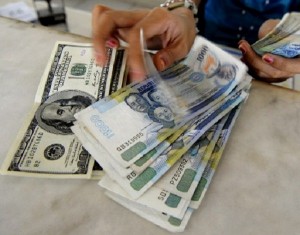MANILA, Philippines—The full implementation of the open access and retail competition scheme set for December this year may be delayed yet again, as certain policies and issues still need to be ironed out.
Energy Secretary Jose Rene D. Almendras admitted that the government might not be able to complete the requirements for the open access scheme—which was supposed to make electricity prices in the country more competitive—in time for the December target.
But he was quick to add that the reviews of the proposed revisions of existing rules and policies for the open access scheme were being “rushed.”
“We’re reviewing the details again with the Energy Regulatory Commission. We’re working on it. We need to … come back with another set of recommendations,” Almendras explained.
Full implementation of the scheme may take place early 2013, depending on how the test run of the mechanism will turn out this year.
Almendras disclosed that, in the meantime, the Department of Energy would look at a partial implementation of open access by December this year. But he declined to cite specific details as to how this would be undertaken.
“There are models being looked at, on how to do partial implementation. I’m not at liberty to discuss that. There’s an option on how to do it partially because it’s also good to try it out and learn, instead of risking everything in one blow. You do it in chunks,” he explained.
Otherwise, a rushed implementation of the scheme may lead to spikes in electricity prices, particularly for electric cooperatives, Almendras added.
Under the open-access regime, large power users will be able to choose their own electricity suppliers, unlike under the current system where they are limited to the supplier that has jurisdiction over their respective areas. This scheme is expected to further spur competition among power stakeholders, resulting in better, more competitive electricity prices.
Eventually, the scheme will be extended to households.
It is highly critical, particularly for these large power customers and industrial firms, for the government to ensure a smooth transition to the open access regime because this is being eyed to have the same effect as the Ecozone Rate Program (ERP), in terms of competitive electricity pricing.
Under the ERP, which will expire on December 25 this year, industries or ecozone locators accredited by the Philippine Economic Zone Authority enjoy government-subsidized rate of P3.90 per kilowatt-hour. This program affects 2,709 firms, which directly employ 915,260 workers and account for 43 percent, or around $19 billion, of Philippine manufacturing exports.—Amy R. Remo



